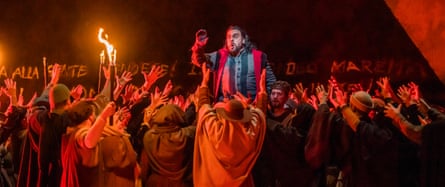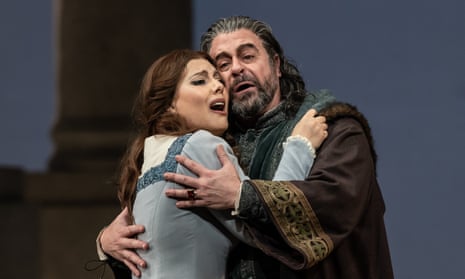There have been many fine revivals of Elijah Moshinsky’s 1991 Royal Opera production of Verdi’s Simon Boccanegra, though few, I suspect, have been as striking as its current outing. It is painstakingly overseen by Moshinsky himself and dominated by a superbly accomplished performance by Carlos Álvarez as the Genoese Doge, who is both destroyed and redeemed by his final confrontation with a past that has long haunted him.
Singing with burnished warmth of tone and an impeccable sense of line, Álvarez is entirely convincing both as the private man and the public figure, carefully contrasting the impulsive sensualist of the prologue with the careworn, principled statesman of the later acts. At the close of the recognition scene with Hrachuhi Bassenz’s Amelia, the simplest phrases suggest a whole world of joy, wonder and bewilderment. Faced with feuding factions in his council chamber, he hurls out “Plebe, patrizi, popolo” with tremendous dignity and command. A subtle actor, he is extraordinarily moving at the close, as Paolo’s poison slowly destroys his body, even as he is finally reconciled with Ferruccio Furlanetto’s implacable Fiesco.

Elsewhere, there were some moments of unevenness on opening night that will doubtless sort themselves out during the run. Bassenz sounded gorgeous, but took time to settle. Conductor Henrik Nánási got off to a similarly cautious start, though the later scenes had a brooding intensity and the playing was consistently beautiful. Francesco Meli makes a handsome, ardent Adorno, but could at times sing more softly. Furlanetto’s Fiesco, familiar from previous revivals, remains a superb portrait of embittered nobility, formidably sung and rarely bettered.

Comments (…)
Sign in or create your Guardian account to join the discussion